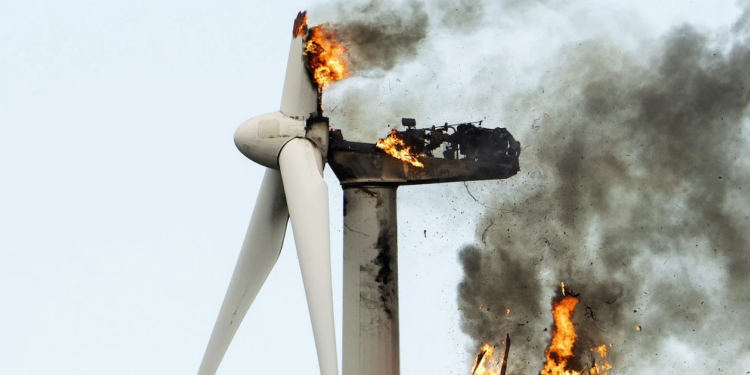The Telegraph has a piece by Gordon Hughes, former Professor of Economics at the University of Edinburgh, about the real cost of Net Zero in the UK and it doesn’t make for comfortable reading. Frustrated by the absence of the lack of any sensible costings of the Government’s Clean Power 2030 plans, he’s done his own. The person who should be squirming in his seat the most is, of course, Ed Miliband, except that his head is firmly in the sand.
Hughes points out that the UK simply doesn’t have either the capital or engineers to achieve the 2030 ambitions. But it’s much worse:
You won’t hear that from Ed Miliband, who still insistently repeats the mantra that decarbonisation of the grid will protect us against price spikes caused by “volatile” gas markets. But he cannot know this, because his department has resolutely refused to produce a credible estimate of what the planned Net Zero electricity system will cost. Indeed, one of his first acts as Secretary of State was to cancel the system costing belatedly commissioned by his predecessor, Claire Coutinho.
In the absence of any official estimate, I have recently calculated and published my own system costing of the Net Zero grid, and I can therefore tell readers with some certainty that Clean Power 2030 is an astonishingly poor deal. On average my calculations show that the Net Zero grid would be a remarkable £15 billion per year more expensive than our current one – even allowing for the possibility of our being hit every 10 years by the rare combination of events that led to the 2022 energy price crisis, namely the destruction of the Nord Stream pipeline and the simultaneous outage of large parts of the French nuclear fleet. Put another way, Net Zero will only look affordable if there’s a crisis. In normal times it will cost us dear.
Why is decarbonising the grid so expensive, given that the cost of generating wind and solar power is almost nothing? The answer is that Clean Power 2030 involves building, maintaining (and periodically replacing) enormously more machinery and grid connection than we currently have, and the payment of huge extra costs in such areas as balancing the grid. My calculations indicate that every household will need to find an extra £925 per year, probably paid for via higher electricity bills.
It’s already clear that the economy can’t sustain any further energy price rises, let alone increases on the scale that Clean Power 2030 would produce. And there are worse problems: it’s not at all clear that we will make it to 2030 without blackouts, as a glance at the Government’s plans for generation capacity over the next few years shows that we might have a crisis on our hands before then.
In essence we may not have enough generation capacity to keep the lights on.
That will mean new gas power stations, but there’s a problem, says Hughes:
Even if we can get the new gas-fired power stations we need built in time, it is unlikely that they will be the high-efficiency combined cycle units that have been the backbone of the grid for three decades. Instead, we will get so-called open-cycle units, which are more suited to intermittent operation, but will deliver more expensive power (and more emissions). Worse, their owners will have to be paid very high prices when we need them to get through periods of no wind and sun, as much of the time they will sit idle. And there will have to be enough of them to power most of the grid without help, as Dunkelflaute windless gloomy periods can last for days and the grid’s batteries for only hours.
The costs will be astronomical:
To put it another way, under our current direction of travel, the best-case scenario is that electricity becomes impossibly expensive but the lights stay on.
With the Government desperate for growth, it is clear that Net Zero is a voyage that the United Kingdom simply can’t afford to take. We will have to turn back if our economy is to survive.
Hughes suggests consumers will be priced out of using power. Unless the Government starts waking up it may be too late and it will face the uncomfortable discovery that when the power cuts start the voting British public won’t care where the power comes from or who provides it, so long as they get it and can afford it.
Worth reading in full, and let’s hope someone in particular does read it.











To join in with the discussion please make a donation to The Daily Sceptic.
Profanity and abuse will be removed and may lead to a permanent ban.